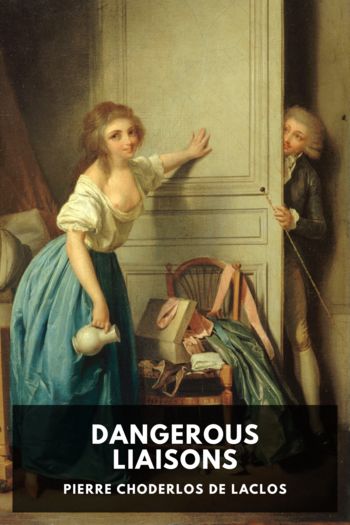The Disappearance of Stephanie Mailer: A gripping new thriller with a killer twist, Joël Dicker [general ebook reader .txt] 📗

- Author: Joël Dicker
Book online «The Disappearance of Stephanie Mailer: A gripping new thriller with a killer twist, Joël Dicker [general ebook reader .txt] 📗». Author Joël Dicker
“Me?” Bergdorf said, turning pale.
“Stephanie got herself hired at the Chronicle so that she could discreetly carry out an investigation into the quadruple murder in 1994. She was writing a book about it.”
“I had no idea. I’m amazed. But that does explain why she would choose to take such a step down in her career.”
“We know the idea for the book was suggested to Stephanie by someone who was in Orphea on the night of the murders. More specifically, was in the Grand Theater. Where were you at the time of the murders, Mr Bergdorf? I’m sure you remember.”
“It’s true, yes, I was in the Grand Theater. Like everyone in Orphea that night! But I never talked about it with Stephanie, it didn’t really matter that much to me.”
“You were the editor of the Chronicle and you resigned in the days following the murders. There’s also the book you wrote about the festival, a festival that Stephanie was especially interested in. That makes a lot of connections, don’t you think? Mr Bergdorf, did you commission Stephanie Mailer to investigate the 1994 murders and write a book about them?”
“I swear I did not! Why would I have done something like that?”
“When was the last time you were in Orphea?”
“I went there for a weekend in May last year, at the invitation of the town council. I hadn’t been back since 1994. Frankly, I have had no ties in Orphea since I left. I settled in New York, met my wife here, and continued my career as a journalist.”
“Why did you leave Orphea just after the murders?”
“Actually, it was because of Mayor Gordon.”
With these words, Bergdorf plunged us back twenty years into the past.
“Joseph Gordon was a fairly mediocre man, personally and professionally,” he said. “He was a failed businessman. His companies had all collapsed and he only went into politics when the opportunity to become mayor presented itself. He was attracted to the post because of the salary that went with it.”
“How did he manage to get elected?”
“He was a smooth talker, he could make a good surface impression. He would have sold snow to the Eskimos, but he wouldn’t have been able to deliver the goods, if you see what I mean. By the time of the mayoral election in 1990, the town of Orphea was not doing well financially, in fact things were looking dire. Gordon told people what they wanted to hear and he was elected. But very soon, people saw what a second-rate politician he was and didn’t think much of him.”
“Second-rate, maybe,” I said, “but Mayor Gordon did create the theater festival, and that’s had a major impact on the town.”
“It wasn’t Mayor Gordon who created the festival, Captain Rosenberg. It was his deputy, Alan Brown. Very soon after he was elected, Mayor Gordon realized he needed help in running Orphea. At the time, Alan Brown, who was raised locally, had just gained his law degree. He agreed to become deputy mayor, which was a significant first position for someone who’d only recently graduated. It didn’t take Brown long to show what an intelligent man he was. He did everything he could to relaunch the town’s economy. And he succeeded. The good years that followed the election of President Clinton helped a lot, but Brown had laid the groundwork with all his ideas. He boosted tourism enormously, then there were the Fourth of July celebrations, the annual fireworks display, help with setting up new businesses, the refurbishment of Main Street.”
“And he was promoted to mayor when Gordon died, is that right?” I said.
“Promoted, no, Captain. After Gordon’s murder, Alan Brown deputized as mayor for barely a month. There was going to be an election in September 1994 anyway, and Brown had already planned to stand. He was elected with a big majority.”
“Let’s get back to Mayor Gordon,” Derek said. “Did he have enemies?”
“He didn’t follow a clear political line, so he put everybody’s back up at one time or another.”
“Including Ted Tennenbaum?”
“Not really. Sure, they quarreled about a building Ted wanted to turn into a restaurant, but that was no reason to kill a man and his family.”
“Really?”
“Oh, yes. I never believed he could have done it for such a trivial reason!”
“Why didn’t you say anything at the time?”
“To whom? To the police? Can you see me going to the station and calling an investigation into question? I imagine there must have been solid evidence. I mean, the poor guy did die. Not that I cared much, to be honest. I wasn’t living in Orphea anymore. I followed the story from a distance. Anyway, to get back to what I was telling you. Alan Brown’s desire to rebuild the town was a blessing to the small businessmen: the refurbishment of the town hall, the refurbishment of restaurants, the construction of a municipal library and various other new buildings. At least that was the official version. Because under cover of stating that he wanted to get the townspeople back to work, behind the scenes Mayor Gordon was asking them to overprice their services in return for obtaining the contract.”
“Gordon was taking kickbacks?” Derek said.
“Oh, yes!”
“Why did nobody ever mention this when we were investigating?”
“What would you have wanted?” Bergdorf said. “For the contractors to own up? They were as guilty as the mayor. Why not confess to the Kennedy assassination while they were about it?”
“How did you find out?”
“The contracts were public. When the work was being done, you could look up the fees paid by the council to the various contractors. And the firms taking part in municipal construction projects also had to present their balance sheets to the council, which wanted to make sure that they wouldn’t go bust while the work was being carried out. At the beginning of 1994, I arranged to get hold of





Comments (0)